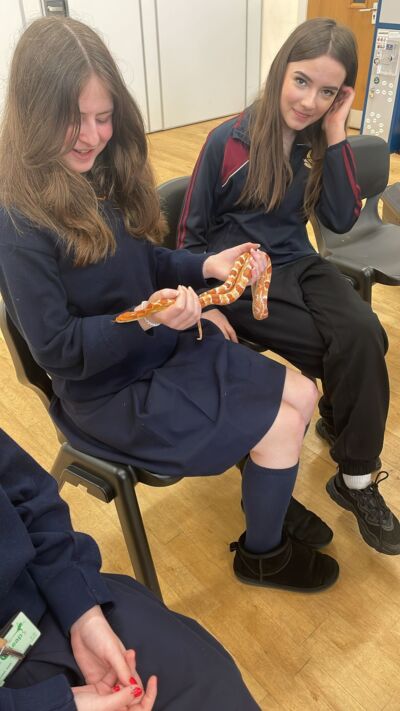She had an illustrious career as a poet, editor and lecturer. She was a professor of English at Standford University where she was also head of its creative writing programme. She was awarded the Bob Hughes Lifetime Achievement Award at the Irish Book Awards in 2017. Her poetry put suburbia in the literary canon, and found a place for political expression there. She strove for her readers to be politicised, active citizens, especially about the south’s ambivalence on the North and on helping the marginalised, the voiceless to find their place in society.
Writing in the Irish Times last week, Boland declared: ‘When I teach, there are always books I recommend to students. My chief category, however, is just this: Books I wish I’d read when I was younger. I don’t think I know when I was a student that books don’t just engage you. They change you. Long after the book is closed you take those changes with you into your life, where they continue to instruct it. They alter what you know and
Add to it. You may well read the book later. But those mysterious changes you never get back. I wish I’d understand.’ I hope our school community can hear these words and start the process of reading, to allow themselves to be sculpted by the mastercraftswoman, Eavan Boland.
Both our fifth and sixth year students had the privilege of studying Boland’s wide ranging and expertly crafted poetry. The following are two fifth year students’ responses to her poetry.
Ms Reynolds
Nellie Warren, 5th year student
Eavan Boland knows how to make her readers feel. Whether it’s empathy or sympathy or horror or guilt, Boland’s poetry often evokes some response from her audience. Often this is due the personal nature of her work, whether it relates to an experience had by Boland herself or to something that interests her and that she feels strongly about. She speaks of her time as a wife and a mother, as a feminist, as a witness to the horror of the troubles in Ireland. And not only does she bring these experiences to light, she also makes us face our own responsibilities and the harsh truths people often try to forget. Boland is unafraid in both her personal revelations and in her observations about society, and these statements are often made through effective use of symbols and metaphors.
My favourite symbol that she uses is the star in ‘Outside History’. Unlike ‘This Moment’ or ‘The Pomegranate’, it is not strictly personal to Boland, but it is something that she feels strongly about what she is writing. It explores the painful truth of people having been hurt and mistreated in the past, only for us to learn now, when they are long gone, what horrible things they endured, and how ‘we are too late. We are always too late.’ It is a deeply powerful poem that should evoke some deep-seated horror in all of us, as we all feel guilt for not being able to help the people left outside history. The message of OH is cleverly delivered through the symbol of stars, which represent the people left outside history. The stars that we see, lit up in the sky, are actually thousands of years old, and their light burned out long ago. And of course, this serves as the perfect metaphor for the people we learn about too late. ‘These stars whose light happened thousands of years before our pain did’.
Alexey Gorelov, 5th year student
'I have chosen, out of myth into history I move'. The symbol of myth is universal and one that we can all relate to. Ancient stories have been passed on for thousands of years and have been used to relate to our experiences. Personally, I believe that Eavan Boland masterfully crafts elegant 'myths' through her universal symbols such as 'The Pomegranate' and a bird in 'Love'. They added a sense of personality to each of her poems and allowed me to view them from her perspective. However, Boland also reminds us that myths are morals to learn from the past. She uses innocent symbols such as stars in 'Outside History', a cradle in 'Child of our Time', and a 'Famine Road' effectively to offer deeply powerful truths not only about 'history' but make a connection with the conflict that pervades today's society. These are important messages on marginalisation of women and violence in poems such as 'The Shadow Doll'. Like myth, the metaphors and symbols she uses give them a universal quality that means her truths on society are still as honest and relevant as when she wrote them.
Myths are universal, and in my opinion, each of Boland's narratives are a myth. Each has a personal symbol that turns it into a story, and we can relate to stories. Experiences such as motherhood and love are made accessible through her simple but powerful metaphors. However, we also learn from stories, and Boland has offered some uncomfortable truths about today's society from her stories. Whether it is the way we have marginalised women, or not taken on the duty to protect our loved ones, I believe that the effective and universal symbols and metaphors used in these stories have made Boland's poetry relatable and honest. Relatable and honest are the qualities of myths that still make them relevant today, and Boland's insightful 'myths' still resonate with me today.
Outside History by Eavan Boland
These are outsiders, always. These stars—
these iron inklings of an Irish January,
whose light happened
thousands of years before
our pain did; they are, they have always been
outside history.
They keep their distance. Under them remains
a place where you found
you were human, and
a landscape in which you know you are mortal.
And a time to choose between them.
I have chosen:
out of myth in history I move to be
part of that ordeal
who darkness is
only now reaching me from those fields,
those rivers, those roads clotted as
firmaments with the dead.
How slowly they die
as we kneel beside them, whisper in their ear.
And we are too late. We are always too late.





